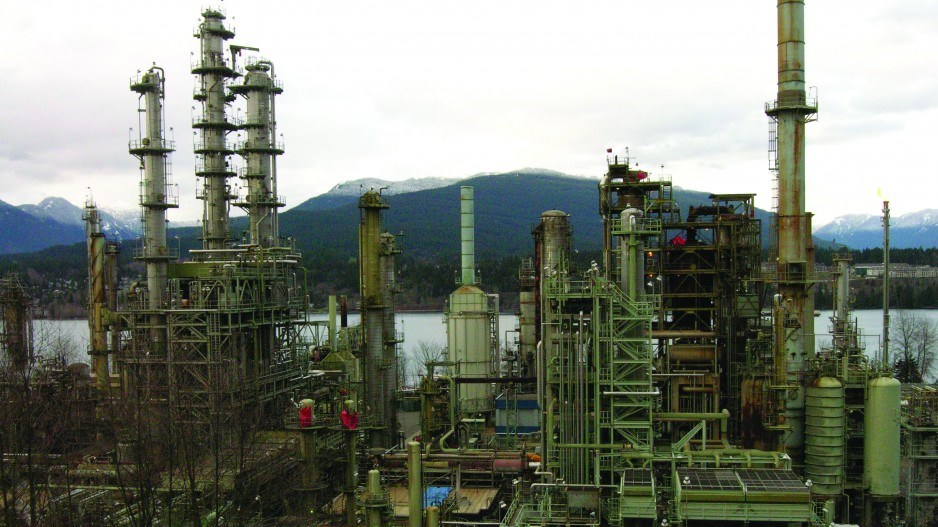While it may sound contradictory and even hypocritical for B.C. politicians like Andrew Weaver and John Horgan to, in the same breath, speak against oil pipelines and in favour of oil refineries, there is some logic to it.
But it doesn’t include much economic logic, according to one petroleum analyst.
Both Horgan and Weaver have spoken recently about the need for Canada to refine more of its own oil, rather than export it in raw form for other countries to refine.
But if their argument is that refineries are needed to satisfy domestic needs, it’s a bit like arguing that more trains are needed to address what is, in fact, a lack of train tracks.
And if their argument is that refineries should be built to boost the export of refined fuels, then they are failing to understand that the biggest potential customer – China – wants oil for its own refineries, not refined fuels.
Since the biggest concern over crude oil exports is what a large oil spill might do to B.C.’s coast, exporting refined fuels such as gasoline and diesel would go some way to addressing those concerns.
That is what motivated B.C. newspaper mogul David Black to propose his $22 billion Kitimat Clean refinery. His idea is to bring Alberta bitumen to Kitimat by rail in a semi-solid form called “neatbit,” refine it and export gasoline and diesel to China and Japan.
The plan would address environmental concerns and also provide more value-added jobs, say its backers.
Not long after Black began promoting Kitimat Clean, Pacific Future Energy came up with a similar proposal. While the latter is now making its way through the Canadian Environmental Assessment Agency (CEAA) process, Kitimat Clean’s own CEAA process has been on hold sine 2016.
Black’s refinery proposal comes with a price tag that is double what it cost to build the new Sturgeon refinery in Alberta. The additional cost comes in part from technology that would cut carbon dioxide emissions by two-thirds of what a normal refinery would produce. But Black said it could be built in phases, with the first phase coming in at $8.5 billion and a production capacity of 125,000 barrels per day.
Brian Ahearn, vice-president of the Canadian Fuels Association, said there’s no substantial demand for new refineries in North America.
“The demand for petroleum products in North America is flat to declining,” he said. “So the opportunity for energy growth is in Asia and the Far East or India.
“That’s where the energy growth is going to take place and that’s why there is such a large crude demand, and there’s such a large refined-product demand. That’s the business opportunity that Kitimat [Clean] might be chasing.”
Michael Ervin, senior vice-president of industry consultancy firm Kent Group, can’t see new refineries being built in Canada, especially not in B.C., thanks to its environmental activism.
There is also some question of how the B.C. government, which may struggle to fit the LNG Canada project into a very tight carbon budget, could also absorb the emissions from a new refinery.
“How do you propose to build a plant with no emissions?” said petroleum analyst Dan McTeague.
Even if a refinery could be built here, Ervin said, the market in China for refined fuels is limited, because China wants crude for the refineries it plans to build, not refined fuels.
“If there’s any country that’s going to build their own refineries, it’s going to be China,” he said. “Refineries tend to be built close to the point of consumption, not halfway across the world.”
Black insists there is an appetite in China and Japan for refined fuels from Canada.
“I’ve been there,” he said. “I’ve talked to 12 companies and government institutions in China and another bunch in Japan. Yes, people are willing to do that.”
So why is the project not moving ahead?
Black said the project would need a $10 billion loan guarantee from Ottawa. Not only is Ottawa not willing to provide that backing, it also informed him it would need to strike a federal panel to tour Canada to get feedback on the project – an exercise that would cost $300,000 per month, at Black’s expense.
“Pretty effective at pushing me away,” Black said.




